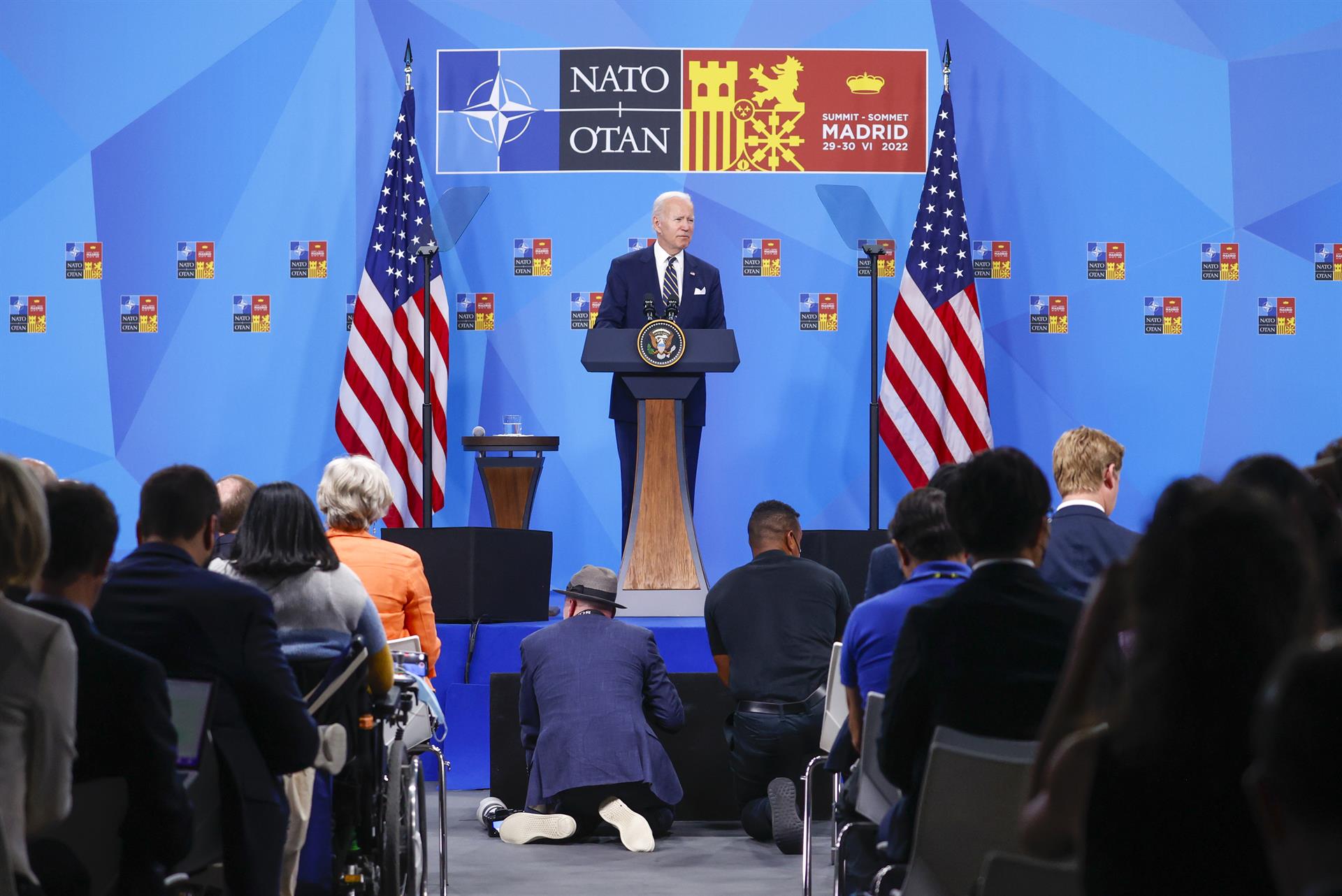"Whatever you do, don't mention the war". At John Cleese's disastrous fictional restaurant Fawlty Towers, the maître d' once put his foot in it by rudely exposing his World War Two prejudices as some nonplussed German guests sat down to lunch. Over half a century later, and at the NATO conference in Madrid, the Spanish hosts had to scramble to avoid a similar meal-time mistake: whatever you do, don't mention Russia. Certainly not at a NATO conference which not only defined the country led by Vladimir Putin as the "most direct threat" to the West, but also launched a new concept of 360 degree defence - that is, defence in "all domains and directions". Even, perhaps, in the soup.
The problem arose because the NATO summit cafeteria served up the traditional and delicious potato salad, an important component of the Spanish tapas menu, under the name by which it is known to all and sundry: an ensaladilla rusa - a Russian salad. And at a conference basically focused on how to prevent a Russian military offensive, this provoked more than a few comments from journalists covering the meeting.
At the NATO summit, where it is planned that Russia will be marked as a "threat" to the West - a "Russian salad" was served
— Spriteer (@spriteer_774400) June 29, 2022
🥔 🥕 The dish "Potato salad in the Russian way" from peas, potatoes, carrots and mayonnaise for 8 euros was first on the menu.
😋 pic.twitter.com/R0RqkEbWdr
Well. You can imagine the response: Basil Fawlty (or his Spanish equivalent) suddenly realizes the great faux pas made, busts a blood vessel or two and yells very loudly at his team of Manuels to fix it up toot sweet. And they do so. Within hours, the Russian salad has changed into the traditional salad. The content is the same as the Russian salad, and so is the price. Thus, certain death is avoided, or as Mister Fawlty might have put it: "I mentioned them once, but I think I got away with it."
Ya no hay problema con la ensaladilla rusa en la cumbre de la OTAN. Han cambiado a “ensalada tradicional”. pic.twitter.com/dep7XrErAL
— Fernando H. Valls (@FernandoHValls) June 30, 2022
It so happens that at the dinner of foreign and defence ministers held on Tuesday, the menu included a so-called Kyiv salad, prepared by chef José Andrés. This denomination had no problem at the summit.
The two-day summit of the increasingly misnamed North Atlantic alliance approved its new strategic concept of military alliance with a global scope, with the clear aim of closely monitoring Russia, currently the "most direct threat" to the West, and also China's "challenges" to its "interests, security and values." The new Strategic Concept document is the most important restatement of the functioning of the alliance since the treaty which founded NATO, and it dictates the steps to be taken in the future. The new challenges facing the alliance amidst a war in Europe, as NATO secretary general, Jens Stoltenberg, explained in a press conference, have led it to adopt a new line of action different from that it has followed over the last ten years. Among other measures, one of the most relevant involves strengthening the front in Eastern Europe with more troops that can be deployed quickly in the event of an attack.
The new strategic concept presented in Madrid reaffirms that NATO's main goal is to "guarantee the collective defence" of the alliance with a "360º" approach that seeks to defend itself in "all domains and directions" and in "every inch" of Allied territory. The organization is marked by three main tasks: deterrence and defense; crisis prevention and management; and cooperative security. While it seeks to create the conditions for "a world without nuclear weapons," the Atlantic alliance warns that it will maintain its nuclear capabilities to "preserve peace, prevent coercion and deter aggression" by third parties. NATO’s new strategic concept is to pre-position equipment, improve the chain of command, and have planned reinforcements that can be deployed quickly. In line with the increase in troops on the eastern flank of Europe due to the war in Ukraine, NATO's new strategy also includes the intention to "strengthen" its defence capability, especially by focusing on new technologies: "Technological primacy is increasingly influencing success on the battlefield,” Stoltenberg pointed out.
And in that sort of environment, you better think twice before you serve up any ensaladilla rusa.

